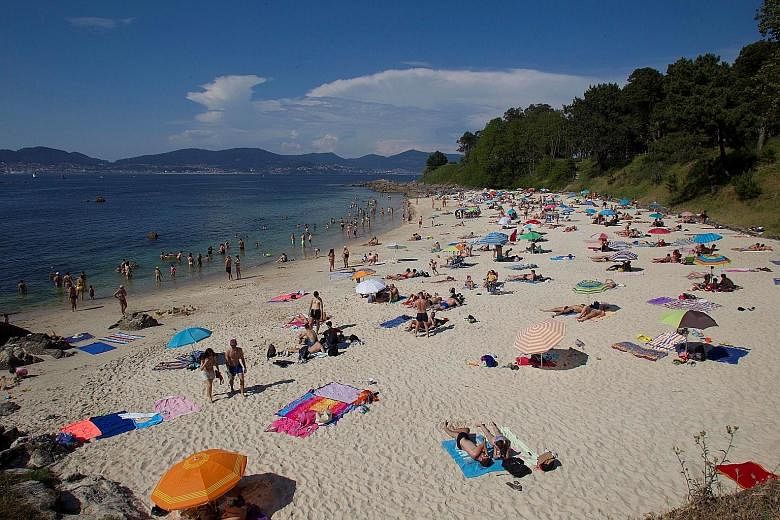The go-to measure for many countries responding to the Covid-19 outbreak has been to put in place lockdowns like what the Chinese city of Wuhan - where the virus was first reported - did in January, said Canadian infectious diseases expert Bruce Aylward.
But he warned that even as countries begin lifting lockdown measures, many still have not put in place basic testing, case finding, contact tracing and quarantine measures to truly keep the virus under control.
"For me, this is the single biggest difference I am seeing between the response in Singapore and other countries in the East, and what I am seeing in the West," said Dr Aylward, who is the senior adviser on organisational change to the World Health Organisation's director-general.
He was speaking on May 21 at a webinar on Covid-19 organised by the National University of Singapore (NUS), the National University Health System and the World Health Organisation's Global Outbreak Alert and Response Network.
While tolerance for lockdown conditions differs between societies and individuals, Asian countries seem to have slightly more tolerance for it than those in the West, Dr Aylward said. But he noted that the limit for most is somewhere between two and three months.
"That is the upper bound in almost any environment because of the economic and societal implications. You cannot lock down indefinitely," he said. "It is so important to use that time well. You have got to drive your cases down during that time, you can't just lock down and hope it is going to drift down.
"You have got to build your case isolation, testing and quarantine capacities because when you take that extraordinary pressure off the virus, you better have something else there to control this thing."
And lockdowns can only slow the transmission of the virus, not stop it completely, he said.
In February, Dr Aylward led the WHO-China Joint Mission on Covid-19. He later worked with the health authorities to coordinate Covid-19 response measures in other countries like Spain and the United States, as well as some countries in Africa and the Middle-East.

He said he was struck by the "astonishing speed" with which the coronavirus overwhelmed sophisticated Western healthcare systems like Spain's.
"In 40 years of war zones, tsunamis, natural disasters, Zika, Ebola and everything else, I have never seen something hit a (healthcare) system like this," he said.
Asked how countries with less powerful economies and less developed healthcare systems have been coping with Covid-19, Dr Aylward said countries in Africa, the Middle East and parts of Asia have very different demographics from those in the West.
Sub-Saharan Africa, for example, has a much younger population compared with Europe and lower rates of cardiovascular disease and diabetes, he noted.
Africa is also used to "dealing with big infectious diseases at scale", said Dr Aylward, citing the phenomenal responses to Ebola, polio and other diseases that have threatened African nations, as well as community structures such as churches and mosques that play important roles in managing outbreaks there.












